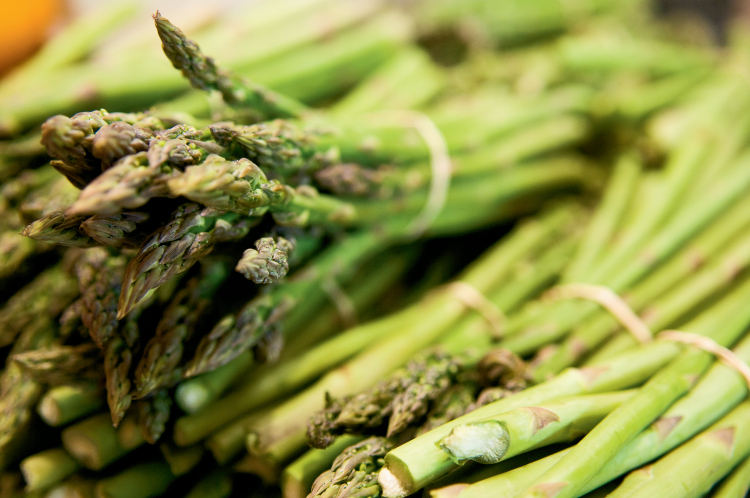Home > Michigan > Michigan Crops & Livestock > Pure Michigan Agriculture
Pure Michigan Agriculture
In partnership with: Michigan Department of Agriculture & Rural Development

The picturesque scenery of the Great Lakes State is made even more beautiful by vast fields of corn and soybeans, apple orchards, nurseries and barns with grazing cattle.
But Michigan farms are more than an aspect of the state’s charm.
One of the top three industries in the state, Michigan’s food and agriculture industry is essential to the economy, providing jobs for nearly 1 million Michiganders while supplying the food we eat, the clothes we wear, the roofs over our heads, and fuel in our vehicles.
Michigan encompasses 10 million acres of farmland, with 33 percent in some form of preservation agreement. In 2013, the state had 52,200 farms.
To raise awareness of the importance of the state’s diverse agriculture industry, the Michigan Economic Development Corporation and agriculture partners launched Pure Michigan Agriculture, a segment of the Pure Michigan tourism campaign.
The initiative aims to connect consumers with the farmers who grow and raise their food, while also educating them about the economic impact of the state’s industry.
The Pure Michigan Agriculture website gives consumers a glimpse of all the state has to offer.
Readers can find information on specific commodities, including beef cattle, dairy products, pork, soybeans, corn and blueberries, plus facts and statistics on agritourism and farmers markets across the state, Michigan farm families, places to find local foods, and financial figures, such as how much Michigan agriculture contributes to the state economy.
For more information on the Pure Michigan campaign and all that encompasses Michigan’s food and agriculture industry, visit michigan.org/hot-spots/michigan-agriculture.
Breakfast On The Farm
As you dig into a plate of scrambled eggs and crisp, salty bacon, have you ever wondered exactly where they came from?
Michigan consumers have the opportunity to learn just that at Breakfast on the Farm events held across the state. The Michigan State University Extension kicked off the inaugural event in June 2009.
Since then, more than 60,860 children and adults have attended Breakfast on the Farm events, learning about modern food production and the farmers who provide their food.
Visitors have the chance to tour the farm, see animals, talk with farmers, and of course, enjoy a delicious breakfast featuring Michigan products.
Learn more about the events and where they will be held in 2015 at breakfastonthefarm.com.
![Michigan Agriculture [INFOGRAPHIC]](https://eadn-wc01-4177395.nxedge.io/wp-content/uploads/2015/03/Screen-Shot-2015-03-31-at-1.47.24-PM.png)
Something For Everyone
Whether you’re searching for freshly picked apples or the perfect Christmas tree, chances are you’ll find it in Michigan.
The Great Lakes State grows and raises more than 300 different crops and commodities. In terms of agricultural diversity, Michigan ranks No. 2 in the country, just behind California.
A few of the Great Lakes State’s nationally ranked commodities include: Top rankings in 2012 for: production of impatiens baskets and flats, begonia baskets and flats, geraniums from seed and cuttings, petunia baskets and flats, Easter lily pots, cucumbers for pickles, dry black beans, dry cranberry beans, dry small red beans, blueberries and squash.
Michigan ranks second in the nation for: fresh market carrots, all dry beans, navy beans, celery, hostas and more. They’re No. 3 in the country for asparagus and tart cherries, among others, and the list goes on.
For a full list of nationally ranked commodities, visit michiganagriculture.com.
![Michigan Farm [INFOGRAPHIC]](https://eadn-wc01-4177395.nxedge.io/wp-content/uploads/2015/03/Screen-Shot-2015-03-31-at-1.51.00-PM.png)
Pure Michigan On Your Plate
Stroll down the aisle at your neighborhood Kroger, and you may stumble upon a wide variety of tasty local products.
In an effort to promote Michigan-grown and -made products, Kroger and the Michigan State University Product Center have committed to selling goods through the Pure Michigan campaign.
Launched in summer 2012, Kroger stores across the state carry more than 55 Michigan products, including jams, jellies, honey, pickles, barbecue sauces and more. Consumers can find special Pure Michigan logos and tags on products that let them know they are made in Michigan.
![Michigan Agriculture [INFOGRAPHIC]](https://eadn-wc01-4177395.nxedge.io/wp-content/uploads/2015/03/Screen-Shot-2015-03-31-at-1.51.15-PM.png)
Team Effort
Michigan’s agriculture and business leaders are doing their part to work together and provide jobs through Pure Michigan Agriculture Summits.
Hosted by Pure Michigan Business Connect and the Michigan Department of Agriculture and Rural Development, last year’s summit gathered agricultural growers, processors, grocers and institutional buyers for a business matchmaking event.
Pure Michigan Business Connect works to help the state’s businesses find new opportunities, and at the agriculture summit, more than 200 ag businesses met with buyers from companies including Kroger, Meijer, Whole Foods and more. Farmers and processors also learned about exports and the latest technology to help make their businesses more appealing and efficient. The 2015 summit is set for March 19. Learn more at michigan.gov/mdard.

Amazing Asparagus
As the No. 3 producer in the nation, Michigan knows a thing or two about growing asparagus. The state produces up to 25 million pounds of the green crop each year, with an estimated total value of $15 million.
In 2013, Michigan counted 287 farms that grew asparagus, harvesting 9,405 acres. About one quarter of the state’s asparagus crop is sold fresh in the grocery store or at farmers markets, while the other 75 percent is sold to processors. The nutritious veggie is high in folic acid and a good source of potassium, fiber, vitamins B6, A, C and thiamin.




